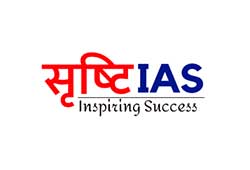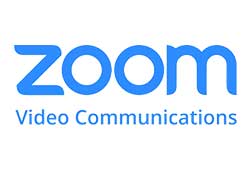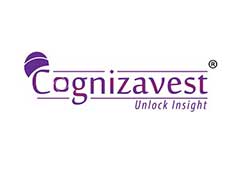Credentials
Counselling Master Course-Advanced, Grade Sheets, Skills Certificates, and Letter of Recommendation
Duration
12 Months
Eligibility
Graduation & Above
5 Core Modules
Practice Module, Training Module, Testing Module, Self Branding Module, Case Studies Module
Program Credits
4 (as per.NSQF)
Program Start Date
23rd Aug, 2025
Course Overview
If you're feeling uncertain about whether this course is the right fit for you or have any questions, feel free to reach out to our "Career Expert". We're here to help you find the best path forward.
About this Course
The Counselling Master Course – Advanced is an intensive, career-focused program crafted for individuals aiming to build specialized expertise in counselling psychology. This 12-month, ICPEM-supported certification blends foundational theory with real-world application, covering over 25 essential counselling domains such as trauma, anxiety, addiction, relationship issues, and more. The course equips learners with advanced techniques and client-centric approaches, preparing them to effectively address diverse psychological concerns. With a strong emphasis on experiential learning, personalized mentorship, and NEP 2020-aligned academic credits, it offers a unique advantage in today’s evolving mental health landscape. Backed by ICPEM’s mission to empower underserved communities through flexible, skill-based education, the program also ensures robust placement support, practical exposure, and the opportunity to build a thriving career in counselling across private, institutional, and entrepreneurial settings.
Learning Objectives
- Gain Mastery in 25+ Advanced Counselling Domains Develop in-depth knowledge and practical expertise across multiple areas like anxiety, trauma, grief, addiction, relationship, and workplace counselling.
- Build a Strong Foundation in Psychological Concepts Strengthen your understanding of the human mind, behavior, emotions, and therapeutic approaches through the foundational psychology course.
- Develop Real-World Counselling Skills Learn to apply techniques such as CBT, mindfulness, crisis intervention, and psychodynamic methods through live sessions, projects, and role plays.
- Earn Recognized Academic Credits (NEP 2020) Acquire 4 academic credits stored in the Academic Bank of Credit, boosting your academic and professional profile.
- Enhance Employability in the Mental Health Sector Prepare for job opportunities in schools, NGOs, hospitals, corporates, and private clinics with 100% job support and placement guidance.
- Become Entrepreneur-Ready Learn business development, self-branding, and marketing strategies to launch and grow your independent counselling practice.
- Develop Ethical & Culturally Competent Counselling Practices Understand client boundaries, ethical responsibilities, and cultural sensitivity in counselling environments.
- Get Personalized Mentorship for Career & Personal Growth Receive guidance from RCI-certified experts to align your career path with your strengths and goals.
- Create Meaningful Social Impact Be equipped to make a real difference in people’s lives by helping them navigate emotional, psychological, and life challenges with confidence.
Course Curriculum
Months
Core Modules
Core Module Session
Case Studies Sessions
-
Understanding Depression: Types, causes, and symptoms.
-
Therapeutic Approaches: CBT, MBCT, and psychodynamic methods.
-
Coping Strategies: Healthy routines, stress management, and support systems.
-
Crisis Intervention: Managing suicidal ideation, safety planning, and relapse prevention.
-
Types of Addiction
-
Causes and Risk Factors
-
Addiction Treatment Models
-
Developing Treatment Plans
-
Understanding Anxiety: Types, causes, and triggers of anxiety disorders.
-
Cognitive Behavioral Techniques: Identifying negative thoughts and developing coping strategies.
-
Mindfulness and Stress Management: Techniques like deep breathing and mindfulness-based stress reduction (MBSR).
-
Building Resilience and Support Systems: Lifestyle changes, exercise, sleep hygiene, and social support.
-
Identifying Stressors
-
Stress Reduction Techniques
-
Cognitive Behavioral Strategies for Stress
-
Relaxation Techniques
-
Understanding Anger: Identifying triggers and the role of anger in emotional regulation.
-
Cognitive Behavioral Techniques: Using CBT to challenge negative thoughts and manage impulsive reactions.
-
Mindfulness & Relaxation: Practicing mindfulness, breathing exercises, and relaxation to manage anger.
-
Improving Communication: Enhancing assertiveness, active listening, and conflict resolution skills.
-
Core Values & Strengths: Reconnect with personal beliefs for growth.
-
SMART Goals: Set achievable goals for transformation.
-
Emotional Resilience: Build coping strategies for challenges.
-
Self-Identity & Purpose: Redefine identity and find meaning.
-
Importance of Career Counseling
-
Assessing Career Interests
-
Career Path Planning
-
Techniques for Career Guidance
-
Time Management: Techniques for prioritizing tasks and reducing stress.
-
Setting Boundaries: Creating clear work-life boundaries to avoid burnout.
-
Stress Management: Using mindfulness and relaxation to handle work stress.
-
Self-Care: Importance of physical and emotional self-care for well-being.
-
Attention and Focus: Types of attention (selective, sustained) and techniques to improve concentration.
-
Memory Systems: Understanding short-term, long-term, and working memory processes.
-
Memory Improvement: Visualization, mnemonics, and chunking for better recall.
-
CBT for Focus: Using mindfulness and stress management to enhance attention.
-
Understanding Grief: Theories of grief (e.g., Kubler-Ross stages) and factors influencing the grieving process.
-
Grief Counseling Techniques: Approaches like empathy, active listening, and creative therapies (journaling, art).
-
Complicated Grief: Identifying and treating prolonged grief disorder, including therapeutic methods.
-
Grief in Special Populations: Supporting children, adolescents, and those facing sudden or traumatic loss.
-
Integrating Spirituality and Mental Health: Connecting spiritual beliefs with psychological well-being and addressing spiritual crises in therapy.
-
Spiritual Assessment in Counseling: Techniques for assessing a client’s spiritual needs and history in therapy.
-
Spiritual Coping Mechanisms: Exploring how spiritual practices help clients cope with stress and trauma.
-
Ethical Considerations in Spiritual Counseling: Maintaining boundaries between spiritual guidance and psychological therapy while respecting client beliefs.
-
The Importance of Cultural Awareness
-
Culturally Competent Counseling Practices
-
Working with Diverse Populations
-
Overcoming Bias in Counseling
-
Communication: Verbal/non-verbal communication, active listening, and overcoming barriers.
-
Conflict Resolution: Different conflict styles and techniques for healthy resolution.
-
Trust and Intimacy: Building trust, emotional intimacy, and setting boundaries.
-
Expectations: Managing unrealistic expectations and aligning relationship goals.
-
Effective Communication: Improving listening and expression in relationships.
-
Conflict Resolution: Strategies to resolve disagreements constructively.
-
Intimacy and Emotional Connection: Strengthening emotional bonds and intimacy.
-
Trust and Forgiveness: Rebuilding trust and practicing forgiveness.
-
Behavior Therapy Principles: Modifying behavior using reinforcement and punishment.
-
Cognitive-Behavioral Techniques (CBT): Combining cognitive and behavioral methods to change thoughts and behaviors.
-
Behavior Modification: Using reinforcement and desensitization to alter behavior.
-
Counselor’s Role: Identifying behaviors and developing intervention plans.
-
Types and Causes of Phobias: Different phobias (e.g., specific, social) and their causes (genetic, environmental).
-
CBT for Phobias: Techniques like exposure therapy and cognitive restructuring to reduce anxiety.
-
Mindfulness and Relaxation: Deep breathing and mindfulness to manage phobic reactions.
-
Addressing Triggers and Trauma: Identifying and addressing triggers, using trauma-informed approaches.
-
Employee Stress Management: Techniques for coping with work-related stress (e.g., mindfulness, time management).
-
Conflict Resolution: Approaches to resolving workplace conflicts through communication and mediation.
-
Work-Life Balance: Strategies to help employees balance personal and professional life.
-
Career Development: Counseling for career growth, skill development, and transitions.
-
Effective Communication: Active listening, open dialogue, and emotional expression.
-
Parenting Styles: Authoritative, authoritarian, permissive, and their impact.
-
Discipline Strategies: Positive reinforcement, setting boundaries, and consistent expectations.
-
Managing Parental Stress: Coping strategies, self-care, and seeking support.
-
Sexual Health: Focus on physical and emotional well-being, STIs, contraception, and sexual dysfunction.
-
Communication in Relationships: Techniques for discussing desires, boundaries, and consent openly.
-
Sexual Identity and Orientation: Understanding and supporting diverse sexual orientations and gender identities.
-
Sexual Dysfunction: Addressing common dysfunctions like erectile dysfunction and treatment options.
-
Stages of Child Development
-
Play Therapy
-
Communication with Children
-
Parent-Child Interaction
-
Life Transitions: Coping with major life changes like career shifts or aging.
-
Stress Management: Techniques for handling stress and work-life balance.
-
Relationship Counseling: Improving communication and resolving conflicts in relationships.
-
Mental Health Issues: Addressing anxiety, depression, grief, and trauma through therapy.
-
Mental Health in Aging: Addressing depression, anxiety, and cognitive decline in older adults.
-
Grief and Loss: Coping with loss of loved ones, health, or independence.
-
Healthy Aging: Promoting physical and mental well-being through self-care.
-
Life Transitions: Adjusting to retirement and new life roles.
-
ntroduction to Rehabilitation Counseling: Overview, role of counselor, ethical/legal aspects.
-
Types of Disabilities: Physical, sensory, cognitive, and developmental disabilities.
-
Assessment and Evaluation: Psychological, vocational, and functional assessments.
-
Counseling Techniques and Interventions: CBT, vocational guidance, emotional support strategies.
-
Family Dynamics
-
Family Systems Theory
-
Effective Communication in Families
-
Conflict Resolution within Families
-
Understanding Trauma:
-
Types: Acute, chronic, complex
-
Causes: Abuse, accidents, violence
-
-
Psychological Impact:
-
Effects: Anxiety, PTSD, depression
-
Cognitive and relational changes
-
-
Trauma-Informed Care:
-
Principles: Safety, trust, empowerment
-
Creating a safe environment, cultural sensitivity
-
-
Therapeutic Approaches:
-
CBT, EMDR, somatic therapies
-
-
Recognizing a Crisis
-
Immediate Interventions
-
Crisis Management Models
-
Post-Crisis Recovery
-
Definition and Scope of Psychology
-
Key Areas of Psychology: Clinical, Cognitive, Behavioral, Developmental
-
Importance of Studying Psychology: Understanding human behavior
-
Applications of Psychology: Real-life scenarios and settings
-
Definition of Mental Health and Mental Illness
-
Common Mental Health Issues: Depression, anxiety, stress, PTSD
-
Risk Factors and Causes: Biological, environmental, psychological
-
Stigma and Its Impact: How stigma affects mental health awareness and treatment
-
Cognitive Behavioral Therapy (CBT): Focus on changing negative thought patterns
-
Psychodynamic Therapy: Exploring unconscious processes
-
Humanistic Therapy: Emphasizing self-actualization and personal growth
-
Other Therapies: Solution-Focused Therapy, Dialectical Behavior Therapy (DBT)
-
Active Listening and Empathy
-
Questioning Techniques: Open-ended, reflective, and probing questions
-
Building Rapport and Trust with Clients
-
Non-Verbal Communication: Significance in counseling
-
Stages of Counseling: Assessment, treatment planning, intervention, and evaluation
-
Establishing Rapport and Trust
-
Ethical Considerations in Counseling
-
Confidentiality and Boundaries
-
Mind vs. Brain: Psychological vs. biological understanding
-
Key Brain Structures: Prefrontal cortex, amygdala, and their roles in behavior
-
Mental Health and Brain Function
-
Neuroplasticity: How the brain adapts and changes
-
Connection Between Thoughts, Feelings, and Behavior
-
Cognitive Distortions: Their impact on emotional well-being
-
Emotional Regulation: Techniques for managing emotions
-
Mindfulness: Role in managing thoughts and emotions
How will this program benefit you?
1.Worldwide validity and credibility of programs.
2.Practical, industry-based, and updated curriculum.
3.Live interactive online classes with recordings available for missed sessions.
4.Instructors are RCI certified and industry experts.
5.Opportunity to study alongside like-minded individuals.
6.Western-style learning approach with weekly 2 days classes and 5 days assignments.
7.Access to practical workbooks and study materials
8.Personalized one-on-one mentoring sessions with industry leaders.
9.Networking opportunities with various psychologists & counselors through diverse instructors covering various topics.
10.Programs consist of 70% practical and 30% theory components.
11.Programs support the Skill Education Movement initiated by the Government of India through Skill India.
12.The programs deliver ten times the value of its cost.
13.Guaranteed placement assistance for diploma and degree programs.
14.Guaranteed interview opportunity with Counsel India for students who achieve 85% or higher in their courses (job role is dependent on skill set and interview evaluation).
15.Doubt-clearing portal available to address questions after classes.
16.Opportunity to work as a Mental Health Assistant (MHA) after three months of completing the program, with potential earnings ranging from ₹5,000 to ₹50,000 per month (selection based on interview).
17.Quarterly "Man se Man tak" sessions with the CEO, providing industry updates and an open forum for learners to ask questions.
18.Ongoing support after program completion for any difficulties, with support validity equal to the program duration.
19.Opportunity to study in a diverse class environment where peers may include doctors, engineers, IAS officers, scientists, housewives, counselors, etc.
20.Offline One Day at Counsel India invite
Who all can join?
All Manager
All Professionals
Coordinators
VPs / VCs
Government Officers
Entrepreneur
Psychology Aspirants
Health / Wellness Experts
Psychology Students/Professionals


Get Upto 35% Scholarship
"Avail up to a 35% scholarship and receive exclusive additional benefits."
- Alumni Network of 12,500+ Members - Gain access to a vast network of over 12,500 alumni who can support and guide you in your professional ventures.
- 90+ Hiring Partners - Benefit from dedicated job assistance through our extensive network of over 90 hiring partners, ensuring you have the best opportunities in the industry.
- Exclusive Membership - Enroll now and enjoy a complimentary membership, providing access to valuable resources and opportunities.
- Personalized Mentoring Sessions - Receive multiple one-on-one mentoring sessions with industry professionals throughout the course, helping you navigate your career path.
- Workshops, Events, and Bootcamps - Get free access to a wide range of workshops, events, bootcamps, and networking meetings, designed to enhance your skills and expand your professional network.

Course Faculty

Refer someone and Earn upto INR 12,000 Cashback/Vouchers, on every successful enrollment
Your friend also gets an instant scholarship!
Success Stories
Our Learners Work At
Frequently Asked Questions
a) You will love each and every class as all sessions are practically conducted and participation in psychology activities is very easy and effective.
b) You will get practical exposure on how to deal with real life clients and not just cover the theory part.
c) Online training sessions will also help you to understand how to take online sessions as a counsellor across the globe and not just limit your client base in your area which is a big challenge for offline mode of training.
Yes, completing the Psychology Foundation Course is mandatory and complimentary for all enrolled learners. This foundational course must be completed within 3 months to qualify for the final certificate. It is designed to strengthen your basics in psychology, ensuring you have a solid understanding to excel in advanced modules of the program.
a) Thousands of people get to know about you with the help of marketing sessions.
b) You reach to needy people by learning Marketing tactics.
c) You can never get clients till the time you master the skills of marketing and self branding
a) You can read notes over a soft copy at your comfort which is accessible on your phone, laptop or desktop.
b) You will also receive Hard copies of the study material at your doorstep after the completion of the course for lifetime reference and support.
a) You take one class every week and start applying it for the rest of your week days.
b) Free yourself from the burden of being disturbed in your working schedule.



_1755835777.png)





























_1752926748.png)